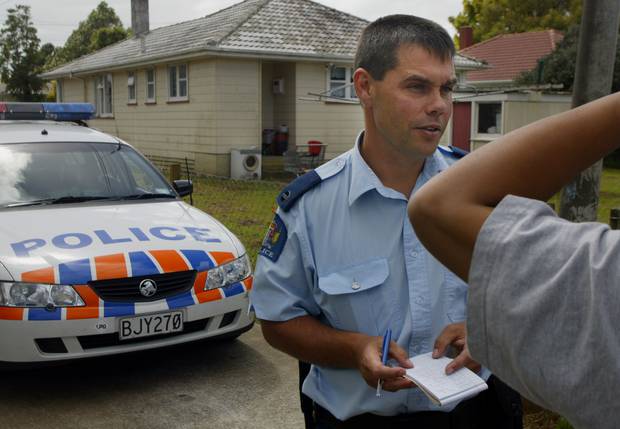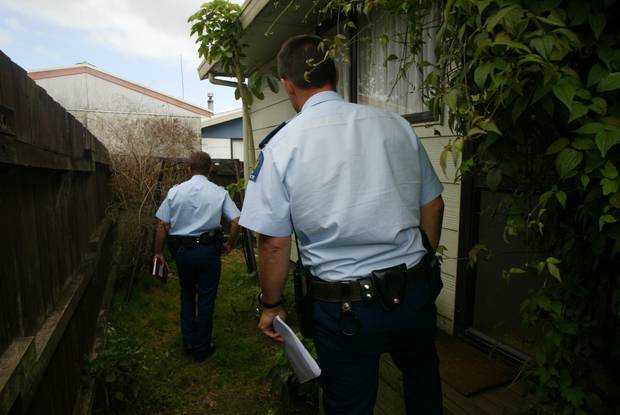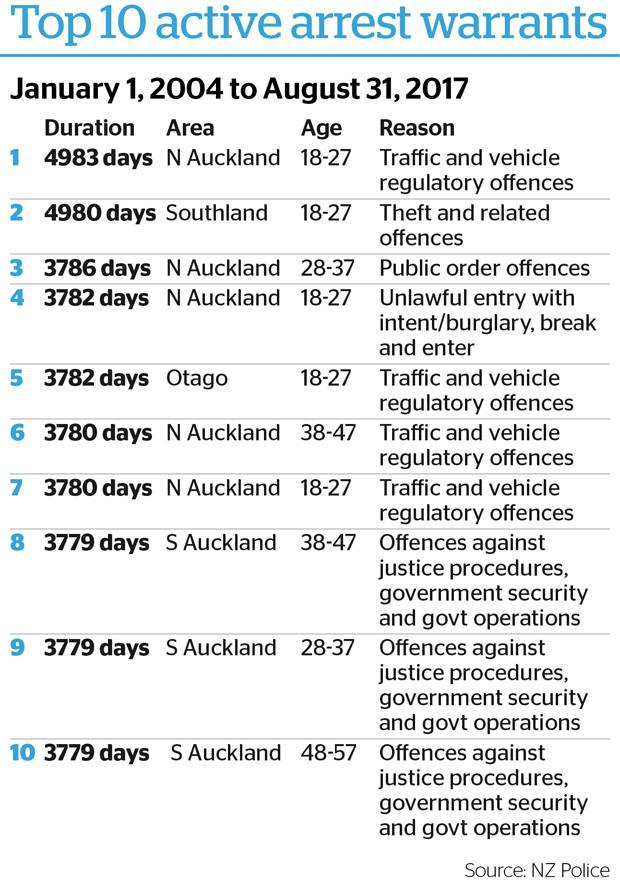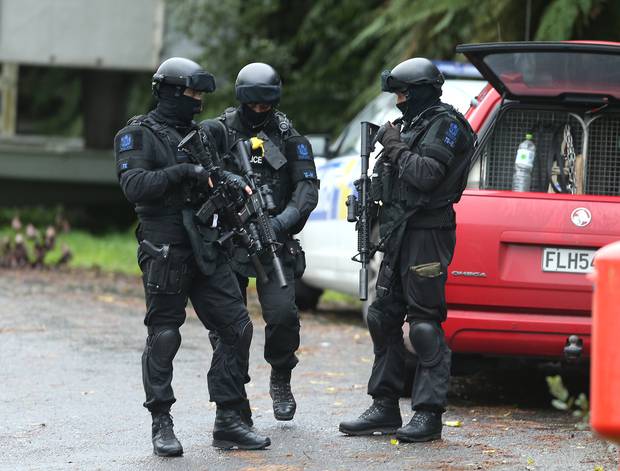
Two people have been evading police custody for more than 13 years.
They are two of nearly 10,000 people wanted on outstanding warrants across New Zealand, according to information released to the Herald under the Official Information Act.
Most of the warrants are in areas police classify as north and south Auckland, with Canterbury following.

Ministry of Justice statistics show the Top 10 longest active warrants of arrest range between 10-13 years. (Photo / Glenn Jeffrey)
The top 10 longest active warrants of arrest range between 10 and more than 13 years.
Police didn't reveal names or sexes of those wanted but said the person with the longest warrant, spanning 4983 days - or just over 13 and a half years, belonged to an Aucklander.
They were aged between 18 and 27, and the warrant was for a traffic and vehicle regulatory offence.
Other reasons for the warrants included offences against justice procedures, government security and government operations, and theft.
Police deputy commissioner of district operations Viv Rickard said the reason for the length of these warrants may be because they are issued for low-level offences.

Papakura Community constable Graham Reid (right) and Sergeant Michael Pritt visit a house with an arrest warrant for the occupant, who was not at home, in 2004. (Photo / Glenn Jeffrey)
"The lower level matters tend to be the warrants that are inactivated.
"If we haven't been able to locate the person then we will put it into our system and wait until we come across them during the course of our business and then execute the warrant.
"At any one time we will have about 9000-10,000 active warrants of arrest so it is about managing our time."
The offences under the top 10 fell into this low-risk offence bracket.
"Those people may have never been in touch with police before and may never do anything wrong again.
"If they were more serious offences then generally you will find that we will deal with those people more regularly and therefore find them."
But having an active warrant will still affect someone's ability to travel overseas and get a benefit, Rickard said.
"This stuff hangs over people so you may as well go in and settle it all up.
"I encourage those people to hand themselves in."

Rickard said police prosecute around 120,000 people a year, and most appear in court.
He said there are a range of reasons people couldn't be tracked down including moving, but some were actively evading arrest.
"Some people just don't want to be caught," Rickard said.
He said people actively evaded police by leaving their home or town, ensuring they kept a lower profile, or hiding out with friends or family.
"For some of those high profile people they will have friends, family and criminal networks which will look after them and actively help them evade police."
He said people who help someone hide from police were usually trying to evade police themselves or had a criminal background. They could face charges for helping someone hide.
Rickard said there were also those "disorganised" people who didn't know they had a warrant for their arrest.
Auckland had high numbers of warrants because of the size of the population - about 1.5 million - and the number of courts in the region (including the Auckland, Waitakere, Manukau and North Shore district courts).
"We find in the metros and large cities that people don't have to leave the city to evade police. They tend to just be able to move around within the city, whereas if you have a warrant for your arrest in Whangarei or Kaitaia for example, then the police are more likely to come across you."
The figures released under the OIA were based on data from January 2004 to August 2017.
Wanted
For more information on people currently wanted by police visit here
Take your Radio, Podcasts and Music with you










